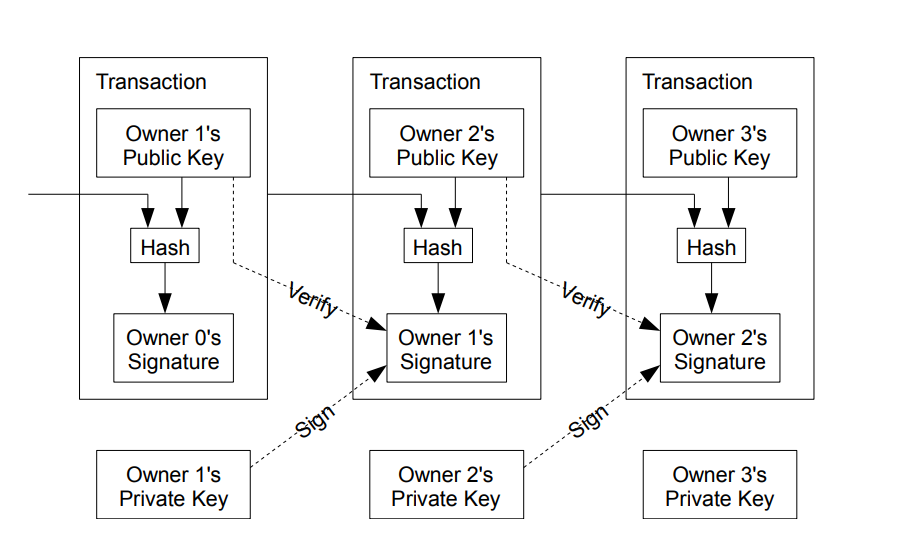This paragraph is discussing the concept of electronic cash that can be sent directly from one party to another online without the need for a financial institution, like a bank.
Digital signatures can help with this, but the problem of double-spending still exists, which means spending the same money twice.
The proposed solution to this problem is to use a peer-to-peer network, where transactions are timestamped and recorded in a chain of proof-of-work.
This chain of proof-of-work can’t be changed without redoing the work, which makes it difficult for anyone to tamper with the transactions.
The longest chain is considered the valid record of transactions and serves as proof of the sequence of events that have happened.
The network requires minimal structure, and nodes can join and leave the network at any time, accepting the longest proof-of-work chain as proof of what happened while they were gone.
Overall, this system allows for secure and decentralized electronic cash transactions without the need for a trusted third party.
